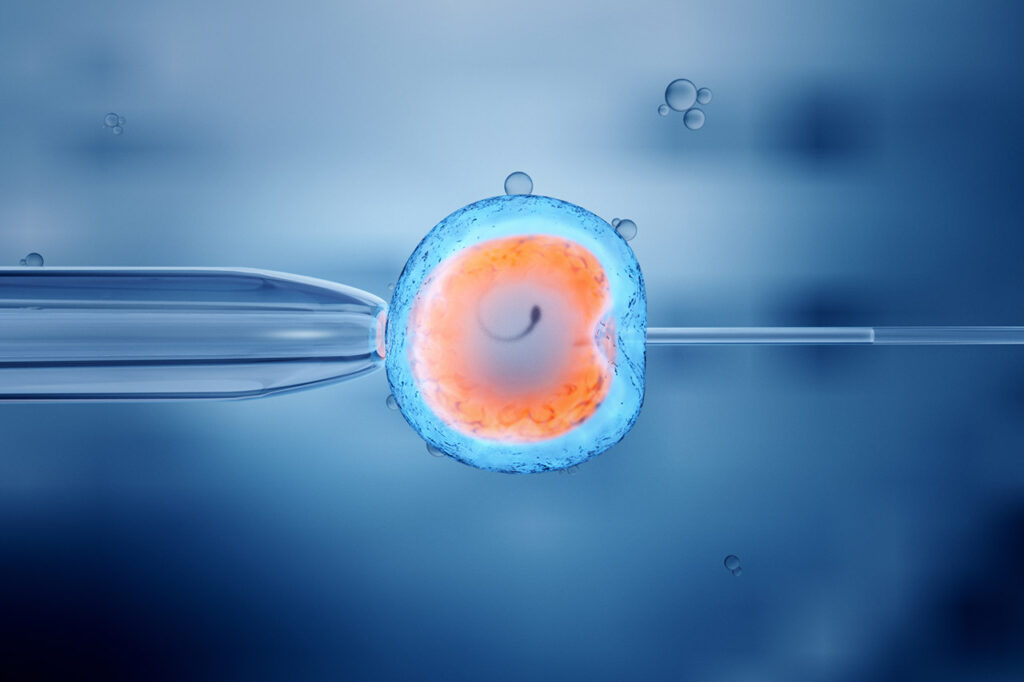Guide to Egg & Sperm Roles in IVF Process
Introduction
In the world of assisted reproductive technologies, In Vitro Fertilization (IVF) has provided hope and a path to parenthood for countless individuals and couples. However, not everyone can use their own eggs and sperm for IVF. For those facing challenges with their own gametes, the option of egg and sperm donation can be a lifeline. In this comprehensive guide, we will explore the process of egg and sperm donation in IVF, the reasons behind choosing these options, and what you need to know when considering donation to build your family.
Part 1: Egg Donation in IVF
Understanding Egg Donation
Egg donation involves using eggs from a donor to facilitate fertilization and embryo development. It is a viable option for individuals or couples facing various fertility challenges, including:
- Diminished Ovarian Reserve: Some women experience a decrease in the quantity and quality of their eggs as they age, making it challenging to conceive with their own eggs.
- Premature Ovarian Insufficiency: Women with premature ovarian insufficiency may have depleted ovarian reserves at a young age, requiring egg donation to achieve pregnancy.
- Genetic Disorders: Couples with a high risk of passing on genetic disorders may choose egg donation to avoid passing on the condition to their child.
The Egg Donation Process
- Donor Selection: The donor is carefully selected based on various criteria, including age, health, genetic history, and physical characteristics. Donors typically undergo thorough medical and psychological evaluations.
- Synchronization: The recipient’s menstrual cycle is synchronized with the donor’s cycle using hormonal medications.
- Egg Retrieval: Once the donor’s eggs are mature, they are retrieved through a minor surgical procedure. This procedure is typically performed under sedation or anesthesia.
- Fertilization: The retrieved eggs are fertilized with the recipient’s partner’s sperm or donor sperm through IVF.
- Embryo Transfer: Healthy embryos are transferred into the recipient’s uterus, and any additional viable embryos may be frozen for future use.
- Pregnancy Test: A pregnancy test is performed two weeks after embryo transfer to determine if the procedure was successful.
Part 2: Sperm Donation in IVF
Understanding Sperm Donation
Sperm donation involves using sperm from a donor to fertilize the recipient’s eggs. This option is chosen for various reasons, including:
- Male Infertility: Couples facing male infertility challenges, such as low sperm count, poor sperm motility, or genetic disorders, may opt for sperm donation to achieve pregnancy.
- Same-Sex Couples: Same-sex male couples and single individuals may choose sperm donation as a means to become parents.
The Sperm Donation Process
- Donor Selection: Sperm donors are selected based on criteria like health, genetic history, and physical characteristics. Donors undergo rigorous medical and genetic screening.
- Sperm Collection: Donors provide sperm samples, which are then processed and frozen for storage.
- Sperm Testing: The sperm samples are tested for quality and screened for infectious diseases.
- Fertilization: The frozen donor sperm is used to fertilize the recipient’s eggs through IVF.
- Embryo Transfer: Healthy embryos resulting from the fertilization process are transferred into the recipient’s uterus.
- Pregnancy Test: A pregnancy test is conducted two weeks after embryo transfer to determine if conception was successful.
Part 3: Legal and Ethical Considerations
Egg and sperm donation in IVF involves several legal and ethical considerations:
- Donor Anonymity: Depending on the region or country, donor anonymity may be protected by law. Recipients should be aware of the legal regulations regarding donor anonymity in their area.
- Donor Consent: Donors must provide informed consent, and recipients must also consent to the use of donor gametes.
- Genetic Testing: In cases of known genetic disorders, genetic testing may be recommended for both donors and recipients to assess the risk of inherited conditions.
- Donor and Recipient Agreements: Legal agreements are often established to outline the rights and responsibilities of both donors and recipients, including issues of parental rights and confidentiality.
Part 4: Emotional Considerations
The decision to use egg or sperm donation in IVF can be emotionally complex. Consider the following emotional factors:
- Grief and Loss: Some individuals may experience grief and a sense of loss related to not using their own gametes.
- Acceptance and Hope: Accepting the use of donor gametes can bring hope and optimism for achieving parenthood.
- Openness and Communication: Open and honest communication between partners is crucial to navigate the emotional aspects of using donor gametes.
- Counseling and Support: Seek counseling and support from professionals who specialize in infertility to address emotional challenges effectively.
Conclusion
Egg and sperm donation in IVF can provide a pathway to parenthood for individuals and couples facing various fertility challenges. It is essential to consider the medical, legal, ethical, and emotional aspects of this journey carefully. Consulting with a reputable fertility clinic and seeking guidance from professionals specializing in assisted reproductive technologies can help you make informed decisions and embark on the path to building your family with confidence and hope. Egg and sperm donation, when chosen with care and consideration, can bring the gift of parenthood to those who dream of starting or expanding their families.


